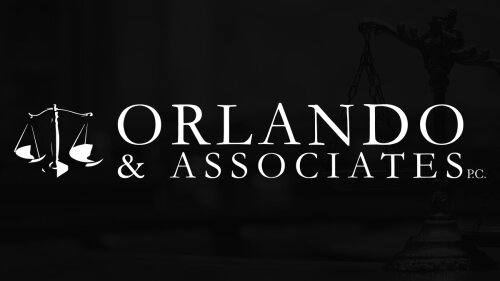Best Appeal Lawyers in Virginia
Share your needs with us, get contacted by law firms.
Free. Takes 2 min.
Or refine your search by selecting a city:
List of the best lawyers in Virginia, United States
About Appeal Law in Virginia, United States
Appeal law in Virginia refers to the process by which a party asks a higher court to review and change a decision made by a lower court. Appeals are a critical part of the justice system, providing a way for parties to seek a review when they believe a legal error has occurred that affected the outcome of their case. The appeal process is governed by strict rules and procedures, and not every case can be appealed. In Virginia, the appellate system includes the Virginia Court of Appeals and the Supreme Court of Virginia, each with its specific jurisdiction and requirements.
Why You May Need a Lawyer
Seeking legal help in appeals can be crucial for several reasons. If you believe a trial court made a mistake in interpreting the law, admitting or excluding evidence, or if there were procedural errors that impacted your case, a lawyer can identify these issues and properly present them to the appellate court. Common situations where people need an appellate lawyer include criminal convictions, family law disputes, civil litigation losses, and administrative agency decisions. Appeals are complex and require in-depth understanding of appellate rules, legal research, and written arguments known as briefs, making the guidance of an experienced attorney highly valuable.
Local Laws Overview
Virginia's appeal process is governed by the Rules of the Supreme Court of Virginia and relevant statutes. Cases from circuit courts can often be appealed to the Virginia Court of Appeals or directly to the Supreme Court of Virginia, depending on the subject matter. For example, most criminal, domestic relations, and administrative agency cases go to the Court of Appeals first, while some civil cases head directly to the Supreme Court. Deadlines are strictly enforced, and missing a filing date can result in the loss of your right to appeal. Appeals in Virginia are generally limited to questions of law, not questions of fact, meaning the appellate court reviews whether legal errors occurred rather than re-examining evidence. The appeal process usually involves submitting written briefs and, sometimes, participating in oral arguments.
Frequently Asked Questions
What is an appeal?
An appeal is a request that a higher court review and overturn or modify a decision made by a lower court due to legal errors or other issues that affected the outcome.
Can any court decision be appealed?
Not all court decisions can be appealed. Generally, only final judgments are appealable, and there are specific rules about which decisions and orders may be appealed and to which court.
How long do I have to file an appeal in Virginia?
Deadlines are strict. In most civil and criminal cases, you must file a Notice of Appeal within 30 days from the entry of the final judgment, but this can vary depending on the case type.
Do I need new evidence for an appeal?
No, appeals in Virginia are not new trials and the appellate courts typically do not consider new evidence. They review the record from the lower court to determine if legal errors were made.
What does the appellate court review?
The appellate court reviews the proceedings and decisions of the lower court to determine if legal errors occurred, but does not re-assess the facts of the case.
What are briefs in an appeal?
Briefs are written arguments submitted to the appellate court outlining the legal issues, relevant laws, and reasoning behind a party's position. Comprehensive and clear briefs are essential to a successful appeal.
What happens after I file an appeal?
After filing the appeal, both sides submit briefs. The appellate court may then schedule oral arguments before issuing a written decision that may affirm, reverse, modify, or remand the case.
What are the possible outcomes of an appeal?
The appellate court can affirm the lower court's decision, reverse it, modify it, or remand the case back to the lower court for further proceedings based on its instructions.
Can I represent myself in an appeal?
You have the right to represent yourself, but the appeal process is complicated and requires strict adherence to statutes and rules. Having an experienced appellate lawyer is highly recommended.
What if my appeal is denied?
If your appeal is denied by the Court of Appeals, you may sometimes request a review by the Supreme Court of Virginia. Further appeals are limited and require specific procedures.
Additional Resources
- The Virginia Supreme Court and Virginia Court of Appeals websites provide detailed information on court rules and procedures. - The Virginia State Bar offers attorney referral services and legal information. - Local legal aid organizations can provide guidance to individuals who qualify for assistance. - Courthouse self-help centers and law libraries offer forms and procedural guidance for those navigating the appeal process. - University law school clinics may offer support in certain appellate matters.
Next Steps
If you need legal assistance with an appeal in Virginia, begin by reviewing your court order and determining the appeal deadline. Gather all court documents and any correspondence related to your case. Consult with an appellate lawyer as soon as possible to ensure you do not miss critical filing deadlines and to assess the viability of your appeal. If you cannot afford an attorney, contact legal aid services or utilize court self-help resources. Always act promptly, as time is of the essence in all appellate matters.
Lawzana helps you find the best lawyers and law firms in Virginia through a curated and pre-screened list of qualified legal professionals. Our platform offers rankings and detailed profiles of attorneys and law firms, allowing you to compare based on practice areas, including Appeal, experience, and client feedback.
Each profile includes a description of the firm's areas of practice, client reviews, team members and partners, year of establishment, spoken languages, office locations, contact information, social media presence, and any published articles or resources. Most firms on our platform speak English and are experienced in both local and international legal matters.
Get a quote from top-rated law firms in Virginia, United States — quickly, securely, and without unnecessary hassle.
Disclaimer:
The information provided on this page is for general informational purposes only and does not constitute legal advice. While we strive to ensure the accuracy and relevance of the content, legal information may change over time, and interpretations of the law can vary. You should always consult with a qualified legal professional for advice specific to your situation.
We disclaim all liability for actions taken or not taken based on the content of this page. If you believe any information is incorrect or outdated, please contact us, and we will review and update it where appropriate.
Browse appeal law firms by city in Virginia
Refine your search by selecting a city.









